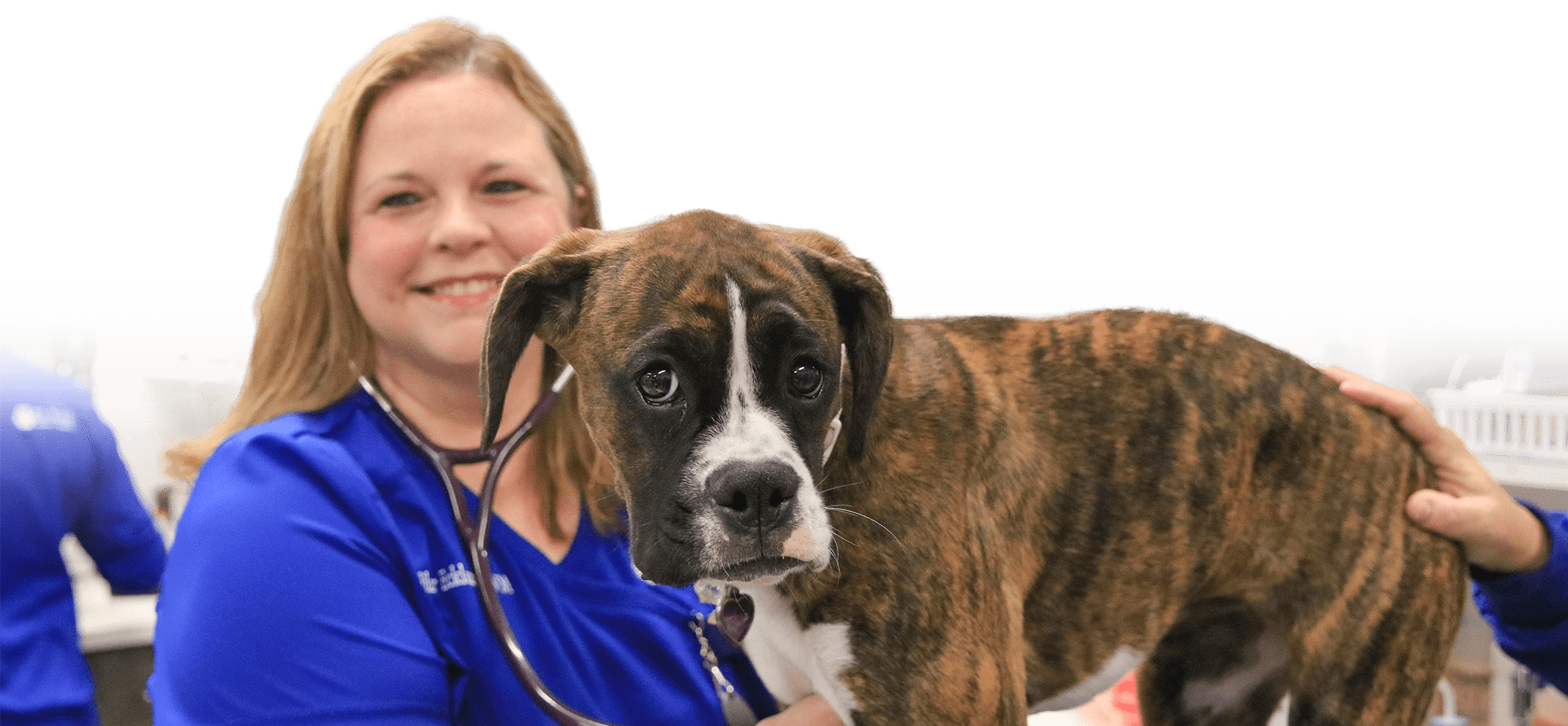What To Expect
Puppy and kitten care focuses on setting up your new furry family member for success during their first six to 12 months. During your new pet’s first visit, we will gather as much information about their first weeks as possible, to help us fully understand their health status. We will then perform a thorough physical exam that may include:
- Weighing your pet, so we can track their growth and development
- Listening to your pet’s heart and lungs
- Examining your pet’s eyes, ears, nose, feet, skin, hair coat, and genitalia
- Palpating your pet’s abdomen and lymph nodes
- Examining your pet’s mouth and teeth
- Screening their feces for intestinal parasites
- Weighing your pet, so we can track their growth and development
- Listening to your pet’s heart and lungs
- Examining your pet’s eyes, ears, nose, feet, skin, hair coat, and genitalia
- Palpating your pet’s abdomen and lymph nodes
- Examining your pet’s mouth and teeth
- Screening their feces for intestinal parasites

During subsequent visits, spaced approximately three to four weeks apart, we will evaluate your pet’s health and development, continue their vaccine series, and address any concerns. When your pet reaches developmental maturity, we will discuss the appropriate time to have them spayed or neutered.
It is important to realize that puppy and kitten vaccine schedules are not one-size-fits-all. We will assess your pet’s lifestyle and risk factors, such as where you live, activities you will partake in, whether your pet will visit a grooming or boarding facility, and recommend vaccines for diseases they are likely to be exposed to. Although many vaccines are available, your pet may not need every one.
We recommend that pets be spayed or neutered to reduce the risk for reproductive diseases and cancers, and to prevent overpopulation. Don’t get us wrong—we love puppies and kittens, but we also want to do our part to help reduce the homeless pet population.
Our veterinarians will help you determine the right time to have your puppy spayed or neutered. Small dog breeds can generally be spayed or neutered around 6 months of age. However, some large breed dogs should not be spayed or neutered until they are fully grown, which can be between 6 and 18 months of age, depending on their breed and size.
Kittens are typically spayed or neutered at a young age, generally around 6 months, to prevent accidental pregnancy.
Spay & Neuter
Call Now
Puppy & Kitten Care Benefits
By ensuring your puppy or kitten receives the health care they need, you will be helping them grow into a strong, healthy adult. The first months of life are the most important for helping your pet build a strong immune system, grow properly, and develop appropriate behaviors. By providing your puppy or kitten with vital health care from the beginning, you will also establish good habits that will encourage excellent care throughout their life.
If you have recently welcomed a new bundle of fur into your home, Congratulations! Visit us today for an exam and start planning their path for health success.



